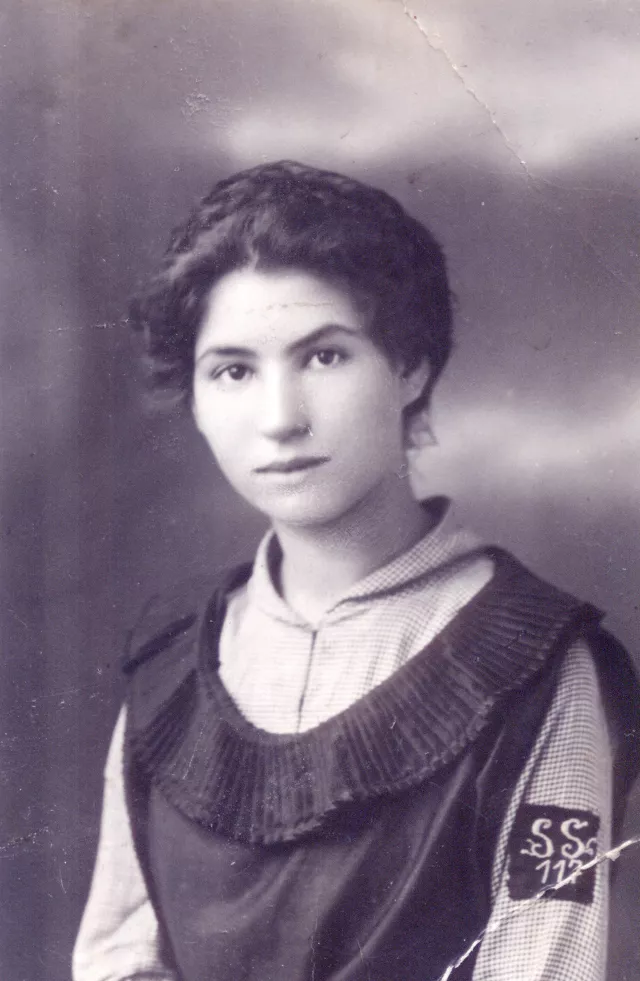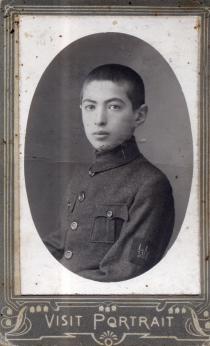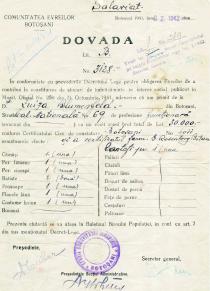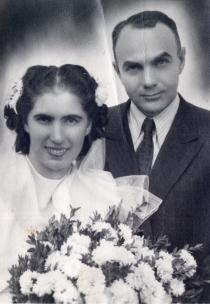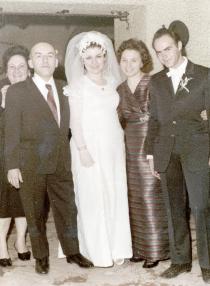Louiza Vecsler
This is me, when I was in high school in Botosani in the 1920s. I was wearing the scouts? uniform, everybody had to wear that back then. It wasn?t a special occasion, as far as I remember.
After high school, I went to study in Iasi, at the Faculty of Pharmaceutics and Medicine, and became a pharmacist. Around 1938, after I had finished my first year at the University of Medicine and Pharmaceutics, I had to have a period of practical training in a chemist's shop in Botosani. When I came home for the summer holidays, whomever I asked, they didn't have any openings; they said they would hire me if the people they already had left, but they couldn't promise anything. There was a Jewish pharmacist, Lerner, at the Military Hospital. My father knew him and the hospital's director, Colonel Apostoleanu. One day my father was walking down the street and he met this pharmacist. He told him that he had a daughter who had to have a period of practical training somewhere. The pharmacist told him, 'Send her to us, talk to Apostoleanu!'. So I talked with the colonel and he agreed, and I started working in the hospital. I learnt from him the first basic notions about pharmaceutics, notions I still remember today and I have always put to practice.
I was directly confronted with anti-Semitism when I finished university, I think I was in my last year, during the last period of practical training in 1941. We had a neighbor, a Jewish widow, who sold her house to a Romanian sergeant. This sergeant, who lived near us, was some kind of surgeon's assistant, and he sometimes came to the hospital to pick up some drugs. He used to say to me, 'Good morning, Miss! How are you? I saw your mother this morning and I told her I'm on my way to the hospital.' This lasted until just before the beginning of World War II. One day, I was on my way home - at that time I was already wearing the yellow star - and a soldier stopped me in the street. A couple was also coming down the street, and they stopped to show their IDs as well. The man who had stopped me told them, 'Go ahead!', and they said, 'Ah, you're only checking the ones with the yellow star?' And he said, 'Yes, only them'. I was in my early twenties and wearing the star was compulsory. After he checked my ID, he let me go. It had rained heavily, there was mud everywhere. Then, when I was almost home and wanted to step on a dry rock, I heard a voice behind me: 'Step aside, you Jew [in Romanian: 'jidauca'], I will not step in mud with my new shoes because of you!' It was the sergeant who was our neighbor and who a month or two ago had said to me, 'Good morning, Miss!' After that I was forbidden to work.
